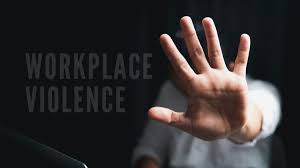
Combating Gender-Based Violence in the Workplace: NHS Wales Leads the Way
“I want to make the world safer for my daughter, who is 15, so when she enters the workplace in a few years’ time, we will know she will feel safer. It is important for me that she feels we’ve done something meaningful to address and combat gender-based violence and harassment in the workplace.”
These poignant words from Sue Tranka, Chief Nursing Officer and Nurse Director at NHS Wales, reflect a deeply personal commitment to tackling gender-based violence (GBV) in the workplace, especially within the healthcare sector.
A Global Issue with Local Implications
Gender-based violence is a global crisis affecting millions, particularly women. In Europe, nearly one in three women report experiencing violence or harassment at work. Vulnerable groups, such as young women and migrants, are disproportionately impacted.
The healthcare sector, where women constitute 78% of the workforce, is far from immune. Nurses and midwives, often the first responders for survivors of GBV, are themselves at risk of violence in their workplaces.
Sue emphasizes the need for systemic change: “Each member of the NHS workforce deserves to experience, while caring for the people of Wales, that their human rights and dignity are protected every single day when they come into the workplace.”
Addressing Intersectionality: Supporting Women from Ethnic Minorities
Recognizing the unique challenges faced by women from ethnic minority groups, NHS Wales has taken a multifaceted approach to foster inclusivity.
“With approximately 12–13% of our nursing workforce from ethnic minority backgrounds, it is vital to address intersecting issues of racism and gender-based violence,” Sue explains. The Workforce Race Equality Standard measures the experiences of Black, Asian, and minority ethnic staff through a culturally competent lens.
“This standard helps us understand how women from these backgrounds experience bullying, harassment, and discrimination, including GBV,” Sue adds.
Building Trust and Providing Support
Central to combating GBV is creating an environment where employees feel safe to report incidents. Sue underscores this need: “Survivors must be able to trust that if they speak up, they will be heard, and action will be taken.”
To support survivors, NHS Wales has implemented government-funded well-being programs, offering resources like counseling and online support. These measures address the mental health and emotional needs of those affected by violence.
Collaboration and Legislative Frameworks
Collaboration is a cornerstone of NHS Wales’ strategy. Through a social partnership model, the organization works closely with workforce unions to develop policies addressing GBV.
The Violence Against Women, Domestic Abuse, and Sexual Violence Act 2015, expanded in 2022 to include workplace harassment, reflects Wales’ legislative commitment to protecting women and girls.
Data collection is another critical tool. Staff surveys include specific questions about safety and harassment, providing insights into the nature and prevalence of GBV.
“Even with these efforts, we know gender-based violence is under-reported,” Sue acknowledges. “The data often underestimates the true extent of the issue.”
A Vision for Safer Workplaces
Wales is striving to become the safest place in the world for women—a vision that inspires the ongoing efforts of NHS Wales. Through collaborative initiatives, legislative frameworks, and robust support systems, the organization is paving the way for safer, more inclusive workplaces.
Sue’s leadership and dedication echo a broader commitment to protecting healthcare workers, ensuring that nurses, midwives, and all staff can work with dignity and security.
As Sue aptly puts it, “Gender-based violence continues to plague our globe. But with sustained efforts, we can create workplaces that respect and protect everyone’s human rights.”
WHO’s Commitment
The World Health Organization (WHO) aligns with these efforts, advocating for the elimination of violence against women and promoting racial equity in healthcare. WHO’s work complements the strides made by organizations like NHS Wales, offering hope for a future free from workplace violence and discrimination.
Through these collective actions, a safer, more equitable world for women in healthcare—and beyond—is within reach.